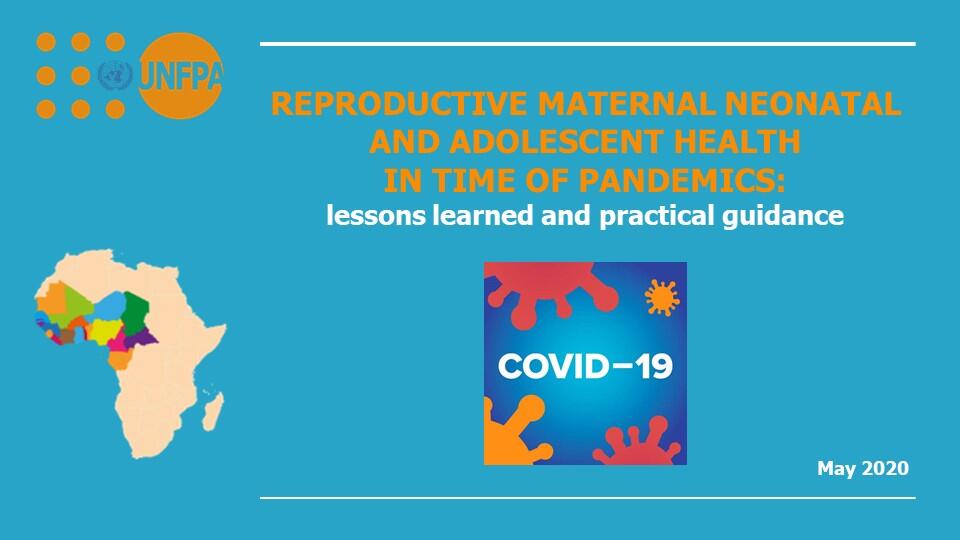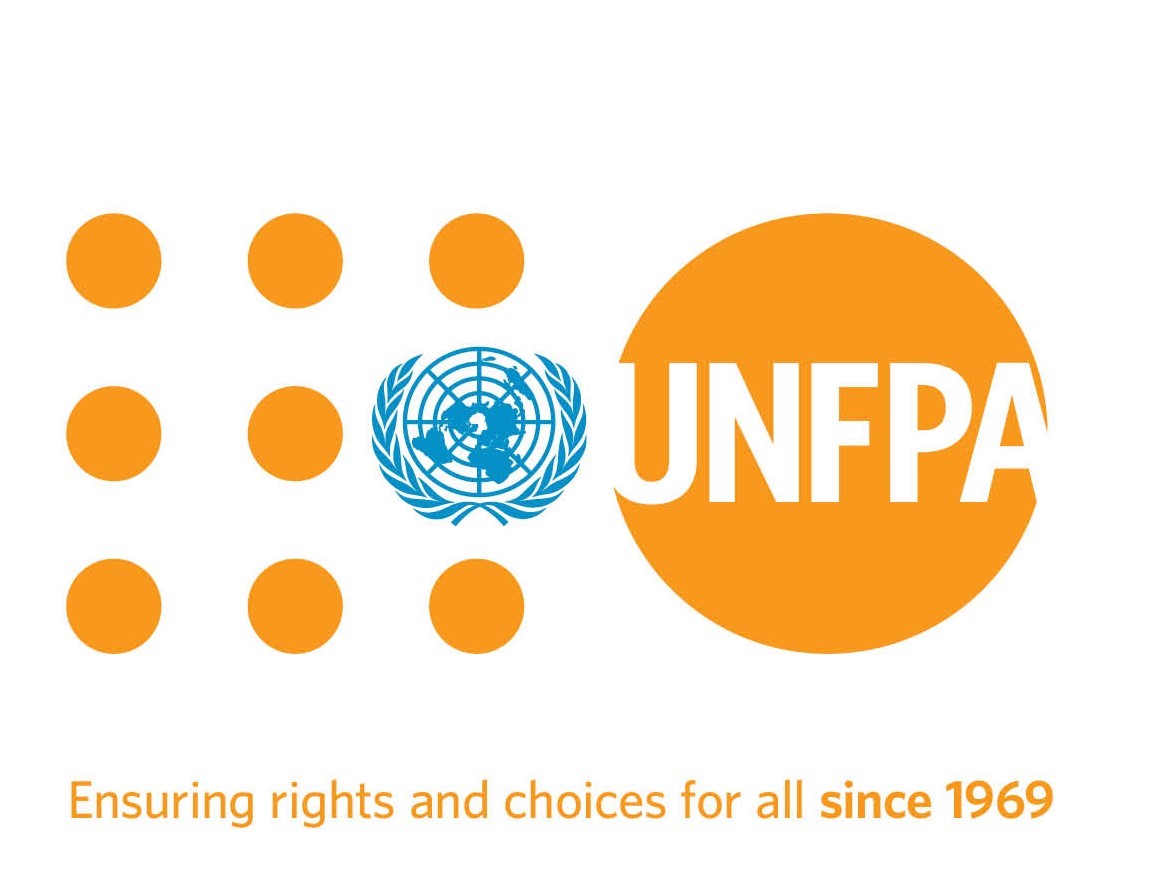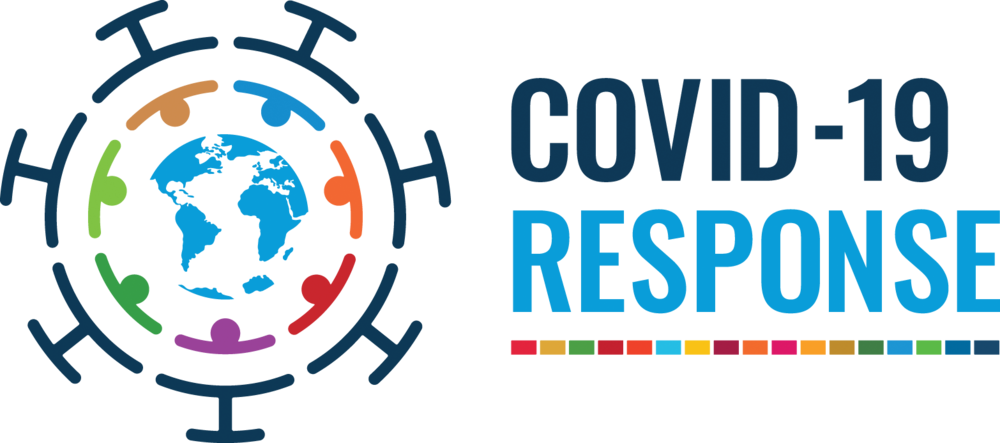Dakar, le 15 mai 2020 - Le Bureau régional du Fonds des Nations Unies pour la population (UNFPA) pour l'Afrique de l'Ouest et du Centre a tenu une conférence de presse virtuelle le vendredi 15 mai 2020 pour présenter les conclusions d'une étude de 20 ans des pandémies avec les enseignements tirés et des conseils pratiques pour assurer la continuité des services de santé maternelle néonatale et des adolescents en période de pandémie
La conférence de presse a été animé par M. Mabingue Ngom, Directeur régional de l’UNFPA en Afrique de l’Ouest et du Centre et le Prof. Macodou Sall, Docteur en santé publique et en épidémiologie.
La publication tire les enseignements de 20 années d'épidémies majeures qui ont affecté le monde, à savoir depuis 2003, y compris le SRAS-CoV, le VIH / sida, Ebola, Zika et MERS-CoV. Les résultats illustrent que les mesures pour endiguer ces épidémies avaient affectés les services de santé maternelle, reproductive et néonatale. Reconnaître comment et dans quelle mesure les épidémies affectent les femmes, les enfants et les autres populations vulnérables constitue un préalable crucial pour la mise en place des réponses efficaces et équitables.
Le professeur Macodou Sall, en se basant sur certaines expériences, a noté dans l’analyse, l’importance d’une communication cohérente concernant les problèmes de santé maternelle et néonatale, qui en vue d’aider les femmes et leurs familles à demander des conseils plus tôt et à prendre des décisions en temps opportun. Il a affirmé que les maternités, par exemple, doivent toujours être conçues pour être perçues comme des lieux sûrs. Les travailleurs de la santé (TS) devraient également recevoir une formation appropriée sur les pratiques de prévention et de contrôle des infections, ainsi que sur l'utilisation appropriée des équipements de protection individuelle (EPI).
« L’UNFPA, organisation leader en matière de santé de la reproduction, tout en se conformant aux directives de l’Organisation Mondiale de la Santé (OMS) apporte un soutien aux gouvernements afin de garantir les droits sexuels et reproductifs et de maintenir la continuité des services durant la pandémie. Dans la riposte au COVID et pour limiter ses effets négatifs, l’implication de la presse est primordiale, aussi bien pour sensibiliser en masse que pour lutter contre la propagation de fausses informations. » a cite M. Mabingue Ngom lors de la conférence de presse.
Le Directeur régional a évoqué les préoccupations liées à la santé des mères et des nouveau-nés qui sont naturellement vulnérables, même s’il n’existe pas de preuve de transmission directe, tout comme la nécessité de soutenir le personnel de santé et les sages-femmes qui sont l’épine dorsale des systèmes de santé maternelle bien que très exposés. En effet, le personnel de santé et les sages-femmes, malgré l’appui de l’UNFPA n’ont pas suffisamment d’équipements de protection individuelle (EPI).
Selon une étude commanditée par l'UNFPA et menée par l'Université Johns Hopkins, l’agence des Nations unies averti qu’en raison de perturbations sur la chaîne d’approvisionnement, si les interruptions liées à la COVID19 se poursuivent pendant 6 mois, 47 millions de femmes dans 114 pays à revenu faible ou intermédiaire ne seront pas en mesure d'utiliser des contraceptifs modernes. L'étude portant sur 114 pays à revenu faible et intermédiaire, a également estimé que si le confinement se poursuit pendant 6 mois, il y aura 31 millions de cas supplémentaire de violence basée sur le genre, de même que 15 millions de cas supplémentaires tous les 3 mois.
Il est établi que les mesures de prévention et de lutte contre la COVID-19 ont un impact négatif sur les services de santé maternelle, reproductive et néonatales. C’est pourquoi il est essentiel de savoir comment les épidémies affectent les femmes, les enfants et les autres populations vulnérables afin de créer des réponses efficaces et équitables.
Les conclusions du résumé de la publication puissent être téléchargées sur le site web de l'UNFPA WCARO, en attendant le rapport complet de l'étude qui sera bientôt mis à la disposition du public.
Contacts :
Habibou Dia| Media Specialist, UNFPA WCARO | dia@unfpa.org | Tel: +221 78 620 45 13– Dakar, Sénégal




